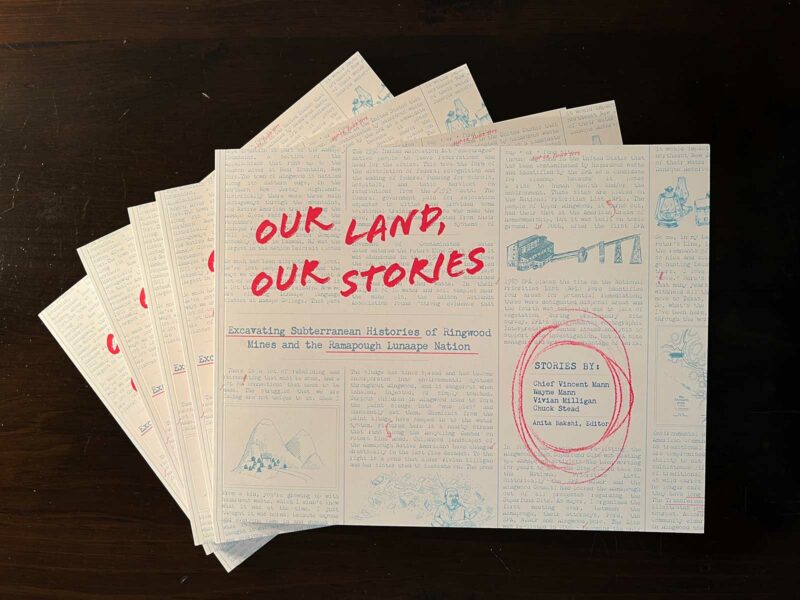The New Jersey Council for the Humanities (NJCH) has announced the recipient of the inaugural Stanley N. Katz Prize for Excellence in Public Humanities, as well as two honorable mentions.
“The Ramapough and the Ringwood Mines Superfund Site – History, Culture, Education, and Environmental Justice,” was awarded the top prize at NJCH’s 50th Anniversary Gala on September 29. The multimedia project, headed by Anita Bakshi of the Rutgers University Department of Landscape Architecture, promotes environmental justice advocacy and curriculum development on Native American history and contemporary Indigenous land relations and was co-created with the Ramapough Lunaape Nation Turtle Clan.
The project focuses on the Ringwood Mines Superfund site, which has been continually inhabited by members of the Native American community for generations despite its toxic history as a former mining site and Ford Motor Company toxic sludge dumping ground. The result is a powerful illustration of how environmental pollution disrupts relationships to land.
“The project illustrates how Indigenous communities are responding with programs for cultural restoration and food sovereignty by incorporating multiple voices and creating a multimedia forum for sharing important stories of land and loss, and of survival and recovery,” said Bakshi, who is an Assistant Professor of Teaching at Rutgers.
The Katz Prize is named in honor of Stanley N. Katz, a longtime faculty member at Princeton University and former chairman of NJCH. The prize carries with it a cash award of $5,000.
In addition to the top prize, two projects were recognized at the Gala as honorable mentions: the Raíces Cultural Center’s project, “Raíces Roots Music Exhibit Series,” and the Asbury Park African-American Music Project’s Digital Museum.
The awarded projects were judged by a panel of peer reviewers and selected from among twenty nominated projects from throughout the state.
“One reviewer described Bakshi’s Our Land, Our Stories book as ‘magnificent,’” said NJCH executive director Carin Berkowitz, PhD. “The panel as a whole was impressed by how the winning project captured the voices of the indigenous community in ways that struck that community as authentic and accurate. We are delighted to honor work that so vibrantly connects so many communities.”
The prize will be awarded annually. It is supported by private donations. To learn more about the 2022 awardees, the namesake of the prize, and how to support future efforts, visit https://njhumanities.org/katz-prize.



